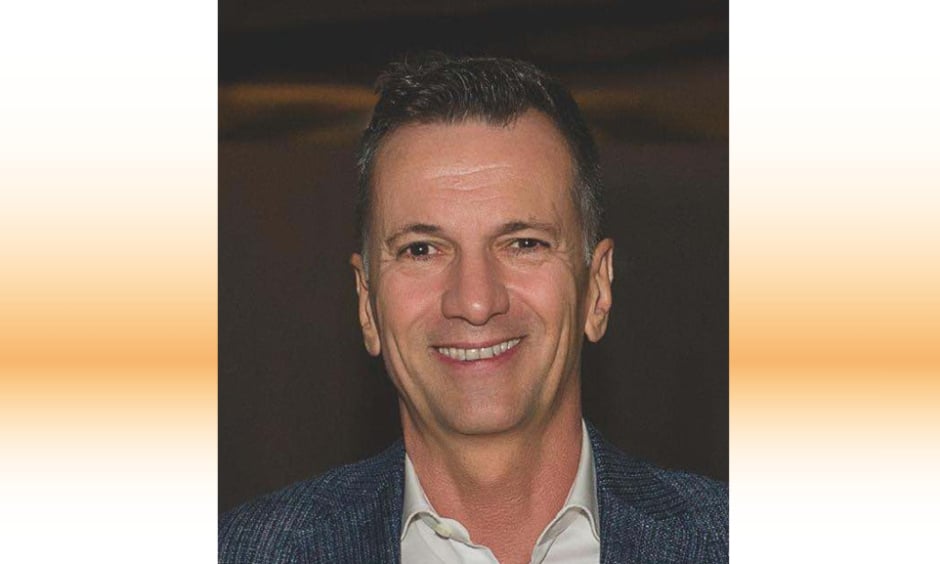Mauricio Silva de Lima, Global Head of Medical Affairs Oncology, Takeda
![]()
Interviewed by James Coker | Reporter, EMG-Health
![]()
Mauricio Silva de Lima has led a distinguished career in medical affairs and has recently started a new role as Global Head of Medical Affairs Oncology at Takeda, based in Boston, USA. We spoke to him about his experiences in the pharmaceutical industry, including how his background in psychiatry has helped him manage teams and adapt to working in different countries.
You have a strong academic and clinical background in psychiatry. How has this experience equipped you for your career in pharma?
In my first role in pharma at Eli Lilly I was responsible for several products in neuroscience, so my clinical and academic background in psychiatry helped a lot. I did that from 2003–2005, before being offered the job of Country Medical Director for UK and Ireland, which covered a number of disease areas, including oncology. From then on, my training in epidemiology and clinical trial design has helped me more than my background in psychiatry because the same methodology can be applied across all disease areas. This knowledge allows me to look at clinical trial data and understand the outcomes, as well as limitations, which is extremely helpful.
Has your knowledge and background in psychiatry contributed to your approach to people management during your career?
Definitely – people joke that I am trained to handle difficult situations and they are right! For instance, in cross-functional teams it’s important to manage conflict and have difficult conversations with employees. I’m trained to have these difficult conversations with people about their lives, so whenever I see that an employee has a performance or behavioural issue, I don’t have to force myself to approach them; it’s natural. I have also developed other soft skills that are important, such as the ability to listen. If I am in a cross-functional meeting and people have different opinions, instead of jumping in and trying to tell others what to do, I listen and learn from different perspectives and then try to understand the business context. So that ability to listen has been very helpful and people really appreciate it.
You have worked across diverse regions of the world, holding positions in Brazil, UK, USA, and Switzerland. In what ways have you found the challenges and approaches of organisations to vary between these areas?
It’s been fantastic to experience different country-specific cultures. Before I took the role of Country Medical Director for UK and Ireland at Eli Lilly, I lived in the UK where I did my post-doctoral training at the King’s Institute of Psychiatry. I’ve always loved the UK and I learnt how to work with British people. I then went to California to work at Genentech. In the first year I struggled because American people are so different from British people; unlike the British, if you deliver a presentation that isn’t great, the Americans will tell you right away. At first, I was shocked because the feedback was so brutal, but I could see that their intentions were good and I had to change my communication style: in America you have to tell people in the first minute what you’re going to present otherwise they get bored. I then became Director, Medical Affairs Europe at Roche, based in Basel, Switzerland. I was fascinated by the Swiss culture and I had 4 fantastic years there. I am now working in Boston in the USA with Takeda. Here, the pace is incredible; people are really competitive, but in a good way.
As the role and influence of MA grows within the industry, do you believe a more centralised structure needs to be developed?
The decentralised structure is important when you are in a global organisation because there are so many differences in the healthcare environment between countries. You need MA to be able evolve and grow in different regions, underpinned by a strong global function that sets the standards, providing consistency and harmonisation where needed. For example, when looking at what type of studies you’re going to run in a particular region or country, you have to understand the specific customer base: what kind of data the payers are looking for and what are healthcare professionals going to value? However, I think the distinct pillars should still be as consistent as possible across the globe. The challenge of a global function is to find a balance: achieving that consistency and harmonisation whenever possible, while allowing for as much flexibility as possible.
What do you believe will be the main challenges MA will face over the next few years and how can these be overcome?
MA have traditionally struggled to demonstrate the value we bring so there’s been a lot of effort to try and measure our value in a way that can be communicated to the business. One of the reasons we struggle with the value proposition is that we are all hired by commercial. Typically, companies bring scientists in to run the preclinical early-phase studies to get a label and then medical services stand between product development and commercial, bringing the critical practice and real-world perspectives to the pivotal data, which is very difficult to execute. If you don’t focus on that, you can be all over the place, covering different areas like medical information, compliance, and regulatory; there are so many functions under the MA umbrella. That’s the main challenge: how we can focus our core MA business and make sure that we deliver on that. I believe that is what will make our communication and value proposition much stronger. In my opinion, our core business is about generating evidence to inform clinical practice and to provide important data for access and reimbursement. This involves communicating the evidence and leading the relationships with investigators, external academic institutions, and patient associations.








